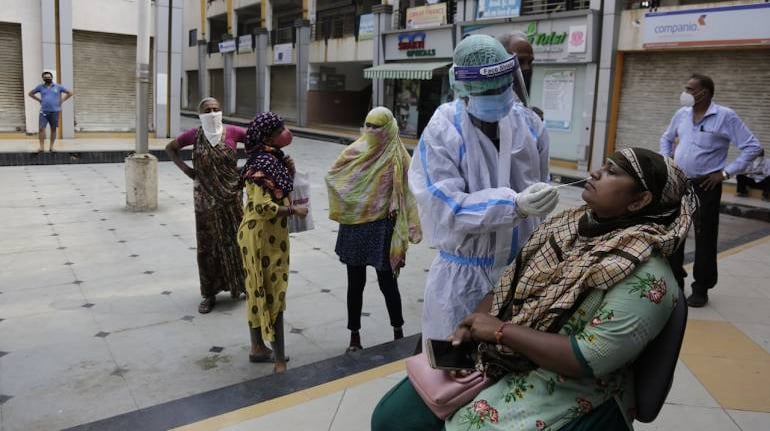
COVID-19 wrap September 14 | 25 MPs test positive for COVID-19; WHO reports record single-day increase in global cases
Globally, over 2.8 crore cases of coronavirus infection have been recorded, with over 9.2 lakh deaths due to the virulent outbreak.
by Moneycontrol NewsIndia has recorded over 48.4 lakh cases of the novel coronavirus of which more than 9.8 lakh are active while around 37.8 lakh have recovered from the infection. The death toll due to the infection 79,722 deaths
Across the country, 9,78,500 samples were tested for the novel coronavirus on September 13, the Indian Council of Medical Research (ICMR) said. Maharashtra's COVID-19 tally remains the highest among Indian states and union territories.
Globally, over 2.8 crore cases of the infection and over 9.2 lakh deaths have been reported due to the COVID-19 outbreak.
Here are the key developments of the day:
COVID-19 Vaccine
Frequently Asked Questions
View more
How does a vaccine work?
A vaccine works by mimicking a natural infection. A vaccine not only induces immune response to protect people from any future COVID-19 infection, but also helps quickly build herd immunity to put an end to the pandemic. Herd immunity occurs when a sufficient percentage of a population becomes immune to a disease, making the spread of disease from person to person unlikely. The good news is that SARS-CoV-2 virus has been fairly stable, which increases the viability of a vaccine.
How many types of vaccines are there?
There are broadly four types of vaccine — one, a vaccine based on the whole virus (this could be either inactivated, or an attenuated [weakened] virus vaccine); two, a non-replicating viral vector vaccine that uses a benign virus as vector that carries the antigen of SARS-CoV; three, nucleic-acid vaccines that have genetic material like DNA and RNA of antigens like spike protein given to a person, helping human cells decode genetic material and produce the vaccine; and four, protein subunit vaccine wherein the recombinant proteins of SARS-COV-2 along with an adjuvant (booster) is given as a vaccine.
What does it take to develop a vaccine of this kind?
Vaccine development is a long, complex process. Unlike drugs that are given to people with a diseased, vaccines are given to healthy people and also vulnerable sections such as children, pregnant women and the elderly. So rigorous tests are compulsory. History says that the fastest time it took to develop a vaccine is five years, but it usually takes double or sometimes triple that time.
>> Delhi Deputy Chief Minister Manish Sisodia tested positive for COVID-19 today. He said that he has isolated himself and is feeling fine.
>> Over 25 Members of Parliament from both Lok Sabha and Rajya Sabha tested positive for the infectious disease ahead of the first day of the Monsoon Session of Parliament.
>> The Indian Council of Medical Research (ICMR) said that it has carried out testing of 2500+ samples of MPs and other officials on war footing over the weekend in service of the nation.
>> Delhi government allowed gyms and yoga centres in the national capital to reopen after being closed for over five months due to the pandemic.
>> A former virologist at Hong Kong’s School of Public Health has claimed that she has proof that the novel coronavirus or SARS-CoV-2 is man-made. Dr Li Meng-Yan claims the virus was made in a virology institute in Wuhan, China where the outbreak originated, and not the wet markets.
>> The World Health Organization (WHO) reported a record one-day increase in global COVID-19 cases yesterday, with the total rising by 3 lakh in 24 hours.
>> S&P projected Indian economy to contract 9 percent in FY21; said that COVID-19 will restrain economic activity.
>> Separated by plastic shields installed in front of their benches, members of Lok Sabha attended the first day of the Monsoon session being held amid the COVID-19 pandemic.